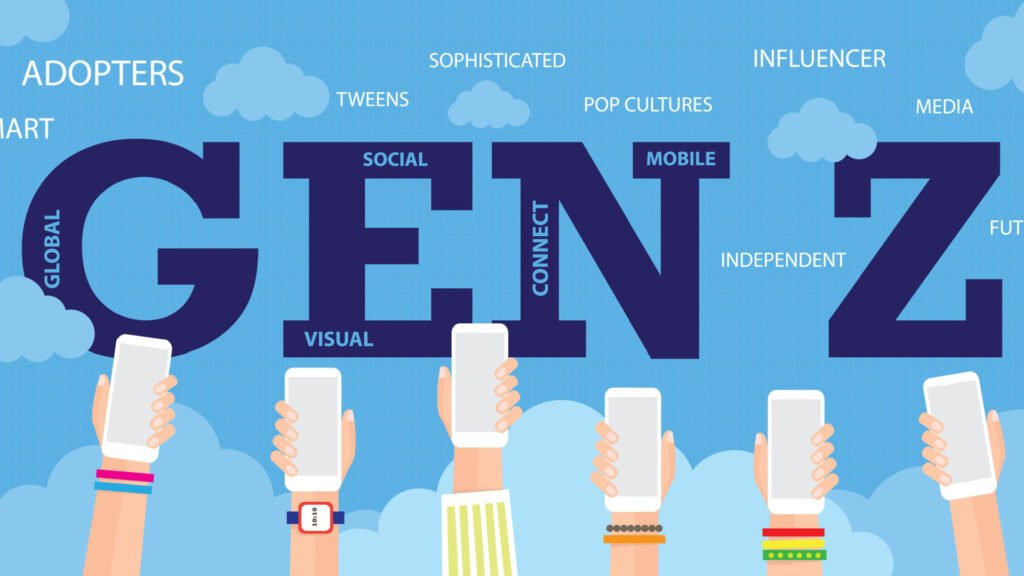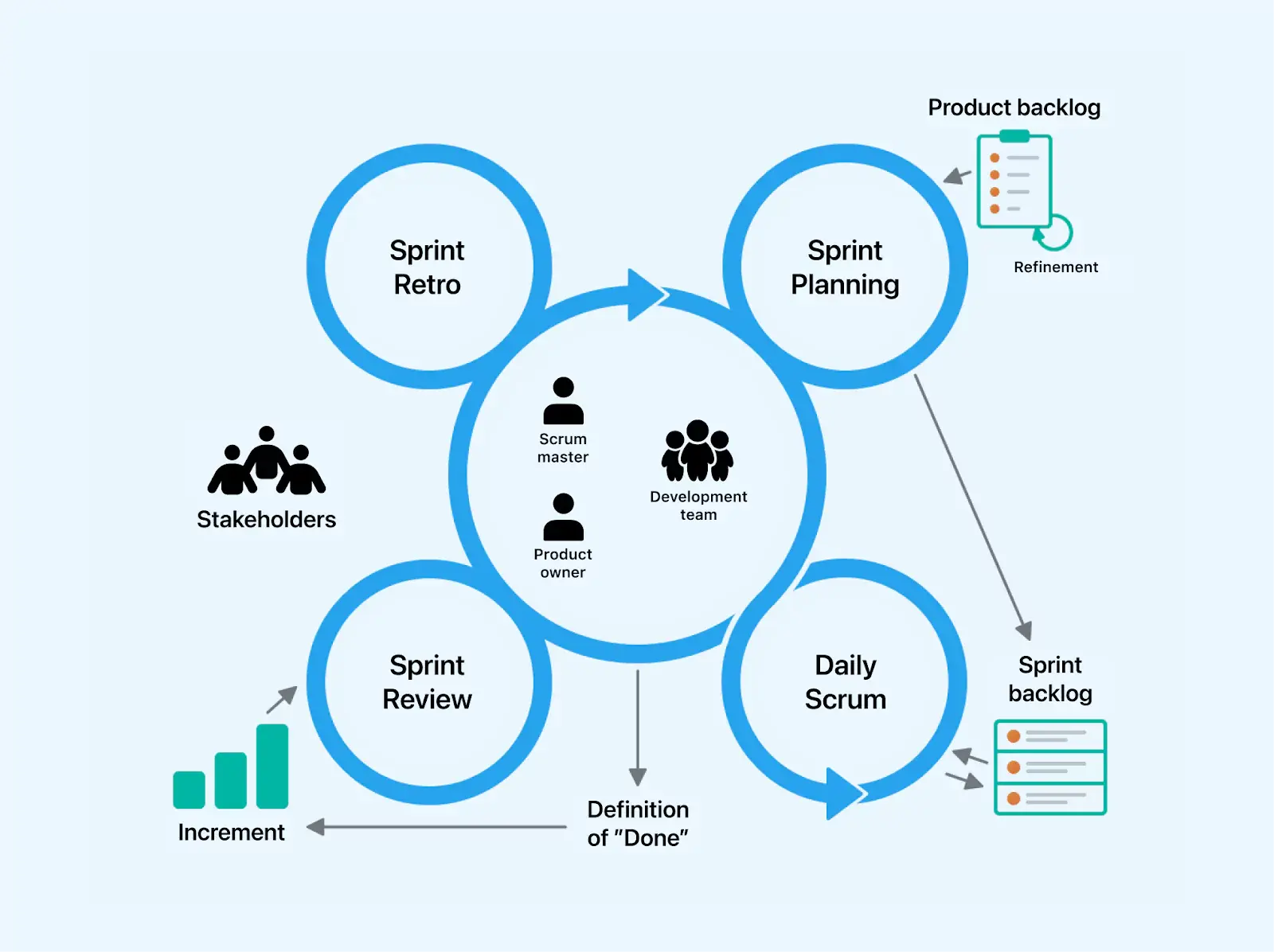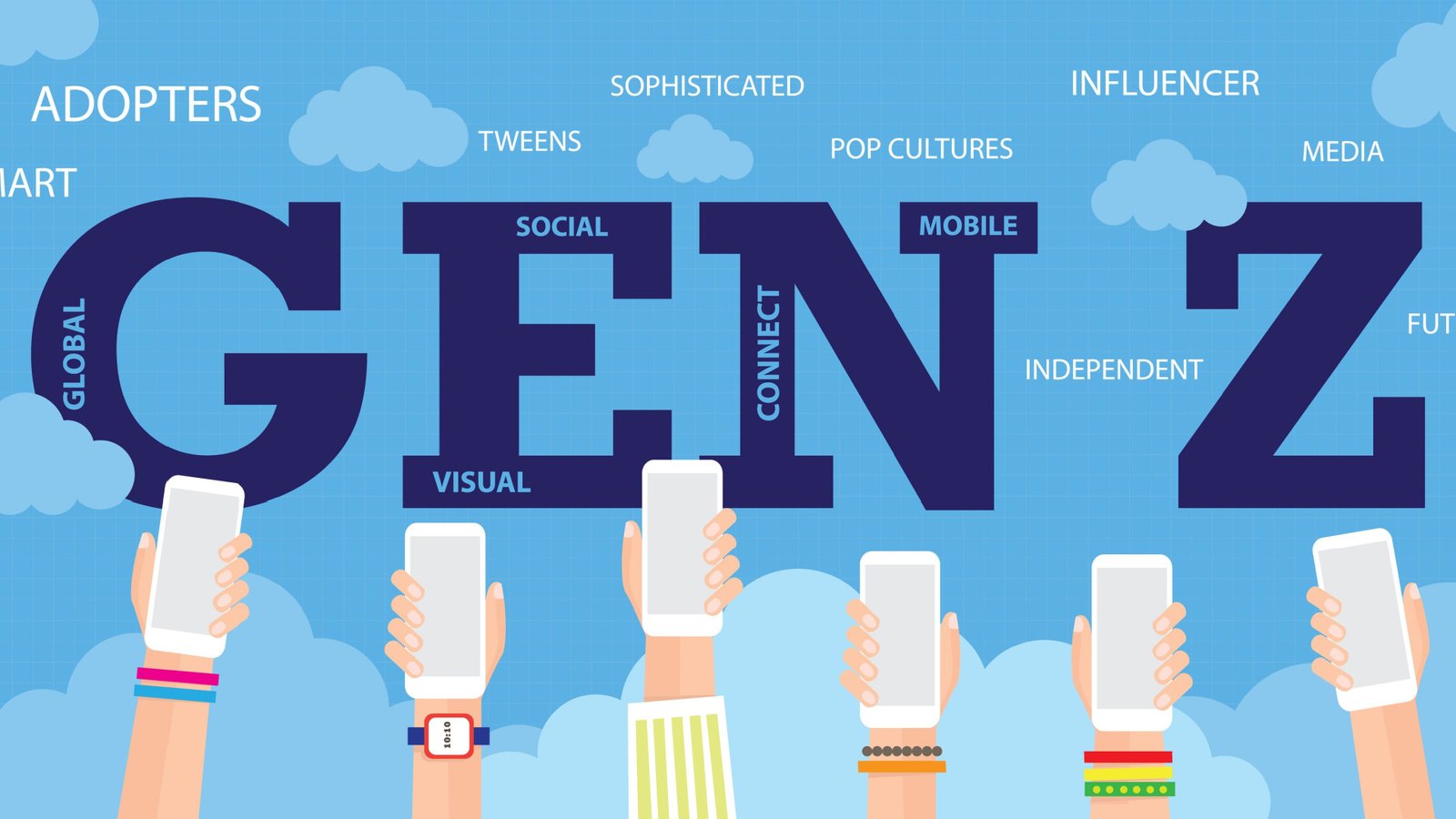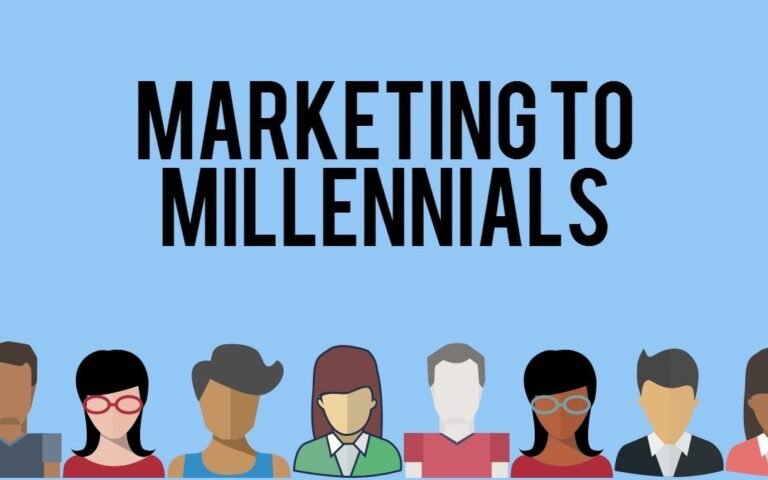How to Adapt Your Marketing Strategy for Gen Z
Generation Z, born between 1997 and 2012, is reshaping the way brands think about marketing. They’ve grown up in a digital-first world, making them true digital natives. With immense spending power and influence over market trends, understanding Gen Z is crucial for any brand aiming for marketing success.
Unlike previous generations, Gen Z consumers value authenticity, inclusivity, and purpose. Gen z wants brands to align with their beliefs and provide meaningful, relatable experiences. This makes traditional approaches less effective when you’re marketing to this group. The Gen Z population is unafraid to voice their thoughts, especially in the face of government and leaders. Understanding the characteristics of Gen Z is crucial in designing effective marketing strategies.
In this guide, we’ll break down the key strategies you need to implement when it comes to effective marketing strategy for gen z. From leveraging influencers to creating engaging content on platforms like TikTok and Instagram, you’ll learn actionable tips that will help you not only reach this audience but also build loyalty and trust. Let’s dive in!

Understanding Gen Z’s Unique Traits
Tech-Savvy and Mobile-First
Gen Z is the first generation to have grown up with smartphones, social media, and instant access to information. This has made them incredibly tech-savvy and deeply connected to their devices. They don’t just use technology—it’s a core part of how they navigate the world.
When it comes to engaging Gen Z consumers, brands need to prioritize mobile-first experiences. Gen Z wants to see real people using your product, not overly polished campaigns that don’t resonate with their values. content marketing is reshaping how brands interact with them. Slow-loading or poorly designed pages? Forget it—Gen Z will bounce faster than you can say “marketing strategies.”

To effectively engage the Gen Z audience, brands need to adopt innovative marketing strategies. market to Gen Z, focus on interactive and easy-to-navigate platforms. Whether you’re running ads on TikTok or creating mobile-friendly shopping experiences, meeting Gen Z’s tech expectations is non-negotiable.
Value-Driven Decision-Making
What sets Gen Z apart from other generations is their focus on values. This generation doesn’t just buy products—they support brands that stand for something. Inclusivity, sustainability, and social responsibility are all non-negotiables for this group.
Gen Z consumers actively seek out companies that align with their values. Whether it’s eco-friendly packaging or vocal support for social causes, they expect brands to walk the talk. If your brand lacks transparency or purpose, you risk losing the trust of Gen Zers.
To engage Gen Z, ensure your messaging reflects what’s important to them. Highlight your sustainability efforts or showcase your contributions to social issues. Remember, it’s not just about saying the right things—it’s about proving it through your actions.
Distrust of Traditional Advertising
Traditional ads don’t work for the Generation Z audience. This group is highly skeptical of overtly promotional content. They’ve grown up skipping YouTube ads and blocking pop-ups, so they’ve mastered the art of tuning out.
Instead, Gen Z responds to authentic, relatable messaging. They want to see real people using your product, which is a key insight for Gen Z marketing strategies. Whether it’s through user-generated content or influencer collaborations, focus on building trust through genuine storytelling.
For brands, this means ditching old-school advertising tactics and embracing strategies that resonate with Gen Z’s preference for real and unfiltered content.
Actionable Strategies for a Gen Z Marketing Plan

Prioritize Authenticity and Transparency
If there’s one thing Gen Z-ers wants and values above all, it’s authenticity. They’re not just looking for brands to sell them something—they want to connect with companies that are real, relatable, and transparent. Generation Z has a keen radar for anything that feels fake or overly polished, and they won’t hesitate to call out brands that don’t feel genuine.
Showcase behind-the-scenes moments, real customer experiences, or even the challenges your company faces. For instance, brands that openly share their journey toward sustainability resonate well with Gen Z consumers. Avoid overhyping your products or making exaggerated claims, Gen Z trusts honesty over perfection.
Authenticity also extends to your tone, especially in content marketing aimed at Gen Z. Use natural, conversational language in your messaging, and ensure that your brand voice feels human and approachable. This is a surefire way to align with Gen Z’s values and build lasting trust.
Focus on Platform-Specific Content
Not all platforms are created equal, especially when marketing to Gen Z. To truly connect with this audience, your content needs to be tailored to the social media platforms they use most—platforms like TikTok, Instagram, and YouTube.

- TikTok: This is the hub for short-form, creative content. Funny skits, trending challenges, and relatable moments are all goldmines for grabbing Gen Z’s attention. The key here is to be quick, authentic, and entertaining.
- Instagram: Stories and Reels dominate on Instagram, making it another strong platform for visual storytelling. Use it to showcase your brand’s personality through vibrant, engaging visuals.
- YouTube: While Gen Z loves snackable content, YouTube is their go-to for in-depth videos. Tutorials, behind-the-scenes content, or thought leadership pieces perform well here.
By tailoring your content to these platforms where Gen Z spends their time, you’ll maximize your reach and engagement. Remember: each platform has its own vibe, so adjust your tone and format accordingly.
Leverage Micro-Influencers
Influencer marketing is one of the most effective tools for reaching Gen Z consumers. But instead of partnering with mega-celebrities, brands should focus on micro and nano influencers. These creators often have smaller but highly engaged audiences among Gen Z that trust their opinions.
Micro-influencers bring an added layer of authenticity that resonates with Gen Z’s preference for real experiences. Their followers see them as relatable and approachable, making their recommendations feel genuine.
When using influencer marketing, collaborate with creators whose values align with your brand. Give them the creative freedom to craft content in their own voice—it’s more likely to connect with their audience and build credibility for your brand.

Interactive and Gamified Experiences
Want to capture Gen Z’s attention? Make your content interactive. From polls and quizzes to augmented reality (AR) filters and gamified challenges, engaging formats keep this audience hooked.
For example, brands that create TikTok challenges or use Instagram’s poll feature are more likely to drive participation among Gen Z. Gen Z is highly different from other generations, they loves interactive experiences because they feel fun, personal, and less like traditional advertising.
User-generated content (UGC) is another great way to drive engagement. Encourage Gen Z consumers to create their own content around your brand, whether it’s unboxing videos, reviews, or participating in your latest campaign. This not only build a community around your brand but also makes your marketing efforts feel authentic and relatable.
Incorporate FOMO and Limited-Time Offers
Nothing motivates Gen Z quite like the fear of missing out. Limited-edition drops, flash sales, and countdowns create a sense of urgency that drives action. Gen Z wants to feel like they’re part of something exclusive, and time-sensitive campaigns deliver just that.
For instance, brands like Supreme and Nike have mastered the art of the “drop,” where products are available for a short window. This strategy taps into Gen Z’s desire for unique, in-the-moment experiences.
Highlight your limited offers through your social media campaigns, using countdown timers and bold calls-to-action to amp up the excitement. The goal is to make Gen Z consumers feel like they’re part of something special that they simply can’t miss.
Creating Content Gen Z Loves
Short-Form and Snackable Content
Gen Z isn’t here for long, drawn-out messaging—they prefer content that gets straight to the point. Platforms like TikTok and Instagram Reels are perfect for delivering bite-sized, impactful content that grabs their attention quickly.
Short-form videos are ideal for showcasing your brand’s personality, humor, or creativity. Whether it’s a relatable meme, a trending challenge, or a quick how-to, these formats allow you to resonate with Gen Z’s fast-paced consumption style.
When creating short-form content, keep it authentic and engaging. Gen Z loves interactive and easily accessible experiences. Add captions to make it accessible, use trending audio to boost reach, and experiment with humor or storytelling. Remember: the goal is to entertain while subtly showcasing your brand.

Visual-First and Video-Centric Marketing
For Gen Z, visuals aren’t just a preference—they’re an expectation. Gen Z is known for being challenging to impress. This generation of consumers gravitates toward high-quality images, eye-catching graphics, and immersive videos. Whether it’s a product demo or a behind-the-scenes look, video content is one of the most powerful tools for engaging Gen Z consumers.

Invest in tools that help create visually appealing content, like Canva for graphics or video editing software for professional-looking clips. On social media platforms, use vibrant visuals to stand out in crowded feeds.
TikTok, Instagram, and YouTube remain essential for video-based marketing. On these platforms, focus on storytelling that feels relatable and raw. This approach not only grabs Gen Z’s attention but also builds emotional connections with your audience.
Staying Relevant with Trends
Monitoring Social Media Trends
Trends are the lifeblood of Gen Z’s online world. From viral TikTok challenges to trending hashtags, staying updated on social media trends is crucial if you want to keep your brand relevant. Gen Z is constantly discovering new content, and brands that can quickly adapt stand out from the crowd.
To stay ahead, monitor platforms like TikTok and Instagram daily. Pay attention to trending audio, challenges, or memes that align with your brand’s voice. However, don’t jump on every trend—only participate in those that feel authentic to your identity.

By engaging in trends while maintaining your authenticity, you’ll show that your brand understands and respects Gen Z’s evolving interests. This approach helps you resonate with Gen Z consumers in a way that feels natural and genuine.
Agile Marketing for Rapid Response
Flexibility is key when targeting Gen Z. This generation moves fast, and their preferences can shift overnight. To effectively market to Gen Z, brands must adopt an agile approach to their marketing strategies.

Being agile means having a content strategy that allows for quick pivots. If a new platform feature or cultural moment arises, you’ll need to respond promptly to stay relevant. This could mean creating a last-minute TikTok video or reshaping a campaign to align with trending topics.
Agility also means being open to experimentation. Test different content types, analyze what works, and adjust your strategies accordingly. This adaptability ensures your marketing efforts stay fresh and engaging for Gen Z consumers.

Conclusion
Gen Z is reshaping the marketing landscape with their unique values, preferences, and digital habits. To effectively market to Gen Z, brands must go beyond traditional marketing approaches and embrace strategies that prioritize authenticity, adaptability, and connection. Here’s a recap of the key takeaways:
- Understand Gen Z’s Traits: They are tech-savvy, value-driven, and skeptical of traditional advertising. Prioritize mobile-first experiences and align with their values to build trust.
- Be Authentic: Showcase real, relatable content that reflects your brand’s personality and purpose. Transparency is key to winning over Gen Z consumers.
- Leverage the Right Platforms: Focus on platforms like TikTok, Instagram, and YouTube to reach Gen Z where they spend most of their time. Tailor content for each platform for maximum impact.
- Work with Micro-Influencers: Collaborate with influencers who resonate with Gen Z’s preference for real and authentic experiences. Their niche audiences build deeper engagement.
- Engage with Interactive Content: Use polls, quizzes, challenges, and user-generated content to keep Gen Z consumers involved and invested in your brand.
- Adapt Quickly: Stay on top of trends and maintain flexibility in your marketing strategies to keep up with Gen Z’s evolving preferences.
To achieve marketing success with Gen Z, it’s crucial to focus on creating meaningful connections. Meet them where they are, listen to what they want, and deliver experiences that reflect their world. The brands that master this approach won’t just gain customers—they’ll build loyal advocates for years to come.
Disclosure: Our blog contains affiliate links to products. We may receive a commission for purchases made through these links. However, this does not impact our reviews and comparisons. We try our best to keep things fair and balanced, in order to help you make the best choice for you.







